As China operations resume, BMW CEO Oliver Zipse sets out the action areas to steer the company’s global production through the crisis …

”Just as the coronavirus had a staggered start, life after the virus will resume at different speeds in different regions. The way some countries in Asia are handling the virus is already looking very promising, and we can model what we do on their experiences,” Zipse said in a BMW Group blog published today.
He added, ”In China we are already back to large-scale production, and sales and marketing are also picking up speed again – despite the increased safety precautions for workers on both fronts. This gives us a good guide as to how we can resume sales and production in, say, Europe or the US as well, while at the same time minimising the risk of infection for our associates and customers.”
Despite the broader shutdown, production at Landshut is still in operation and continues to supply the BMW Brilliance factory at Shenyang, China
Understandably, Zipse conceded that much depends on how quickly life and business can return to normal. One example is when dealerships can reopen and resume trading.
”This is crucial. The basic demand is there – but customers can neither order cars, nor take delivery of them as usual. So let’s not be under any illusion: it could be quite a journey to get back to business as usual. We’ll be keeping a very close eye on the situation and deciding on a plant-by-plant basis,” ZIpse warned.
However, Zipse confirmed that despite widescale suspension of automotive production in Europe and the US, BMW was ”not in collective ‘hibernation’”.
”On the contrary, we’re using our time out to convert the plants. That’s keeping several thousand associates busy. In Munich, for instance, we’re preparing for production of the electric BMW i4 starting in 2021. And in Dingolfing we’re getting things ready for the iNEXT.”
Zipse also confirmed that, despite the broader shutdown, production at Landshut is still in operation and continues to supply the BMW Brilliance factory at Shenyang, China.
The versatile BMW Landshut plant, located in Bavaria about 65km northeast of Munich, manufacturers engine and chassis components from light metal casting, plastic vehicle exteriors, carbon body components, cockpits and instrument panels, electric drives, special engines, as well as drivetrains.
From BMW Group blog: Oliver Zipse’s Q&A in full
Mr Zipse, how does a company survive a situation like the coronavirus pandemic?
With a challenge like this, it all depends on the cooperation between leadership and team. Because when things get critical, it’s people and their commitment that make the difference. The morale of our associates is impressive and fills me with confidence. In these times, I never hear them asking “What can BMW do for me?”; they are all asking “What can I do for BMW?”.
But I don’t want to downplay the situation, of course. Circumstances as serious as this can threaten the existence of even a large company. The dealerships outside of China have virtually stopped retailing. So we have already introduced large-scale measures, in particular to secure our liquidity. But if we keep up our spirited and structured approach, then even in a global crisis like this, we can make the most of the situation.
Without morale, you can’t do anything – but morale alone is not a strategy. What is the Board focusing on now?
It’s imperative that each and every one of us leads by example and lives up to our responsibilities. At times like these, leadership plays a crucial role, and we have to show that we are doing everything we can to combat this extraordinary situation. Specifically, we have three central areas of action: first, we need to guarantee the best possible health protection for our associates. But at the same time, we still need to function as a company. So it’s a form of ambidexterity.
Secondly, guaranteeing our liquidity has absolute priority. We’re in a strong position to face this challenge, but no company can possibly get through something like this unscathed. Guaranteeing our liquidity needs to happen very quickly. The Management Board are currently meeting twice as often as normal, so we can make the necessary decisions as issues arise.
And thirdly, we are preparing to ramp up production as soon as the time is right – in full compliance with all the safety aspects, and with international coordination. It’s essential that we synchronise with the supplier network on this.
So where does the BMW Group currently stand – still in protective mode or have you already got one foot in the ramp-up phase?
The challenge is to manage both at once. Just as the coronavirus had a staggered start, life after the virus will resume at different speeds in different regions. The way some countries in Asia are handling the virus is already looking very promising, and we can model what we do on their experiences.
In China we are already back to large-scale production, and sales and marketing are also picking up speed again – despite the increased safety precautions for workers on both fronts.
This gives us a good guide as to how we can resume sales and production in, say, Europe or the US as well, while at the same time minimising the risk of infection for our associates and customers.
Does that mean production can only go ahead with enough medical masks?
We need clearly defined framework conditions – both for the return to public life and for rebooting production. Masks will play a role, to provide the highest possible protection, but only where it makes sense, to avoid infection. Through our global supplier network, we have the right contacts for systematically procuring these masks – both for our own use and to help public health authorities. We are also reviewing the possibility of producing medical masks ourselves.
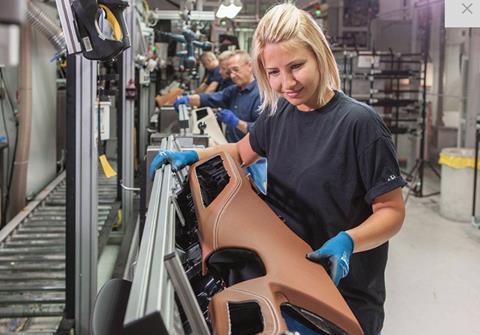
When will you be able to ramp up production again?
It depends very much on how quickly public life can return to some kind of normality and, especially, on when car dealerships will be allowed to open again. This is crucial. The basic demand is there – but customers can neither order cars, nor take delivery of them as usual. So let’s not be under any illusion: it could be quite a journey to get back to business as usual. We’ll be keeping a very close eye on the situation and deciding on a plant-by-plant basis.
Despite all of this, we are not in collective ‘hibernation’. On the contrary, we’re using our time out to convert the plants. That’s keeping several thousand associates busy. In Munich, for instance, we’re preparing for production of the electric BMW i4 starting in 2021. And in Dingolfing we’re getting things ready for the iNEXT. And component manufacturing, for example in Landshut, is continuing anyway, to supply our Chinese plants.
The lockdown in Germany has been extended to mid-April, so it doesn’t sound as if the showrooms will be opening anytime soon. When should a company start putting its economic welfare before the health of individuals?
The health of the people and the stability of the economy should never be pitted against each other. That goes without saying, for us. It’s the shared duty of business, politics, science and society to reconcile both as fully as possible. A nation like Germany especially, which is an enlightened democracy and a high-tech economy – must be able to unite the two aspects.
Our experience in Asian markets like South Korea and China shows that orderly, coordinated, universal and resolute action by government is the key to success in leading the market and the value chain relatively quickly through the coronavirus crisis. I have great confidence in the German Federal Government to strike the best possible balance between protecting the health of the population and preserving the economy, based on scientific findings. And one of our jobs is to always flag up the significant risks for the economy.
Really? There has been criticism that the government reacted wrongly or too late
The German Federal Government and the Bavarian State Government are acting consistently and correctly – and in absolutely exceptional circumstances. They deserve our greatest respect. And by the way, it also shows that the government is still in good working order.
We welcome the measures to stabilise the economy. We can see that politicians have reacted quickly and comprehensively and are keeping the economic risks for businesses in mind. That’s crucial for many suppliers especially.
So far, the much-criticised healthcare system is also proving robust and, quite literally, lifesaving for a lot of people, especially compared with other countries. The gratitude we owe to the countless doctors, nurses and also volunteers is beyond words. They’re doing a superhuman job to save and protect lives.





























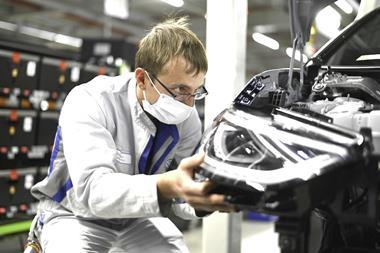
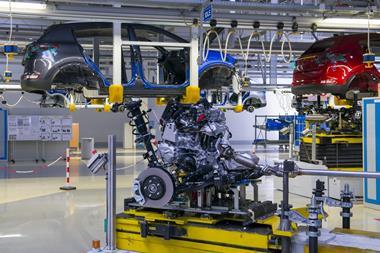
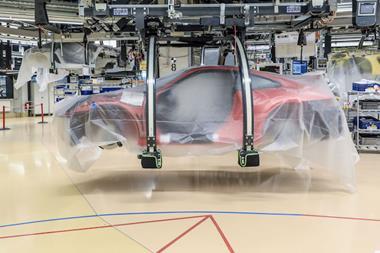
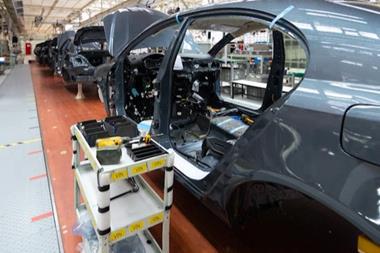
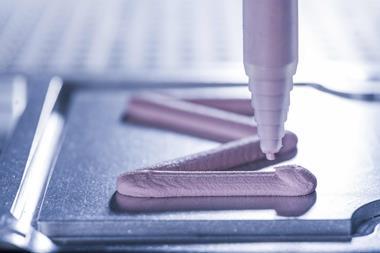

No comments yet